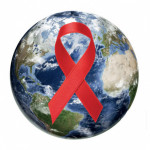A low-barrier HIV care program with access to multiple services in one place can help vulnerable people experiencing homelessness or unstable housing stay on antiretroviral treatment and achieve an undetectable viral load, according to a study published in AIDS.
Researchers from the University of California at San Francisco (UCSF) evaluated outcomes among people served by POP-UP (Positive-health Onsite Program for Unstably-housed Populations), a program operated out of the Ward 86 HIV clinic at Zuckerberg San Francisco General Hospital. People with HIV in San Francisco have good outcomes overall, with 81% of newly diagnosed individuals achieving viral suppression within a year. But that rate falls to just 39% for people without stable housing.
POP-UP includes a drop-in clinic that offers primary care, including mental health care and substance use treatment. A patient navigator links participants to other services, such as case management, housing assistance and help with insurance coverage. Participants receive grocery store gift cards as an incentive for attending the clinic, getting lab tests and maintaining viral suppression.
The team looked at outcomes among 75 participants who currently were not on antiretroviral therapy and who had missed care appointments and made drop-in visits during the prior year. All had a substance use disorder (mostly using methamphetamine), and a majority had a mental health diagnosis. After enrollment, 79% restarted HIV treatment within one week, and 91% returned for a repeat visit within a month. At six months, 55% had achieved viral suppression.
POP-UP kept its doors open during San Francisco’s COVID-19 shelter-in-place order, even as many other health services shut down. A second analysis of 85 participants found that care engagement and viral suppression did not decrease during the pandemic.
“This program demonstrated success in improving care engagement and viral suppression for this highly vulnerable population,” says UCSF associate professor Elizabeth Imbert, MD, MPH.







Comments
Comments